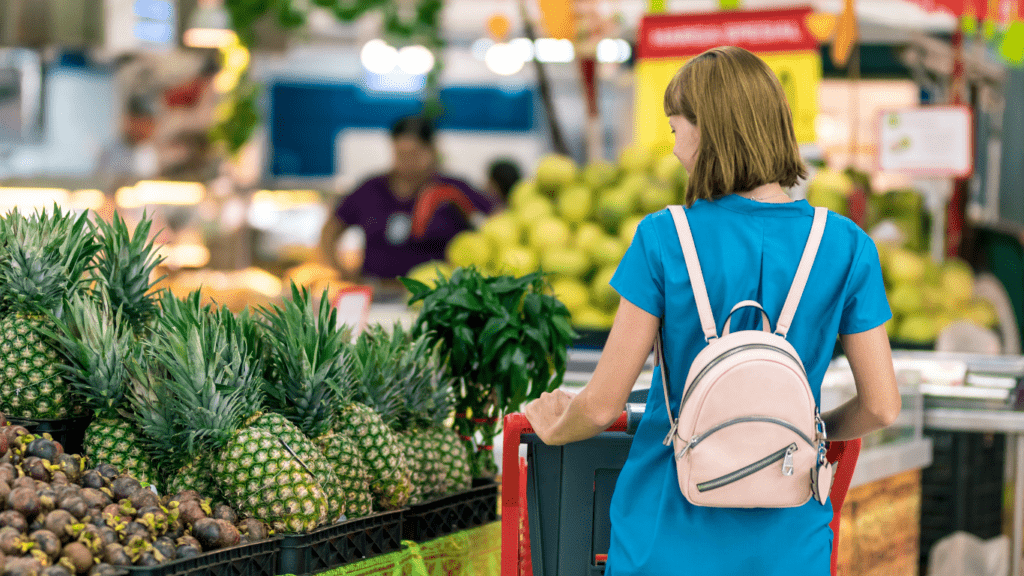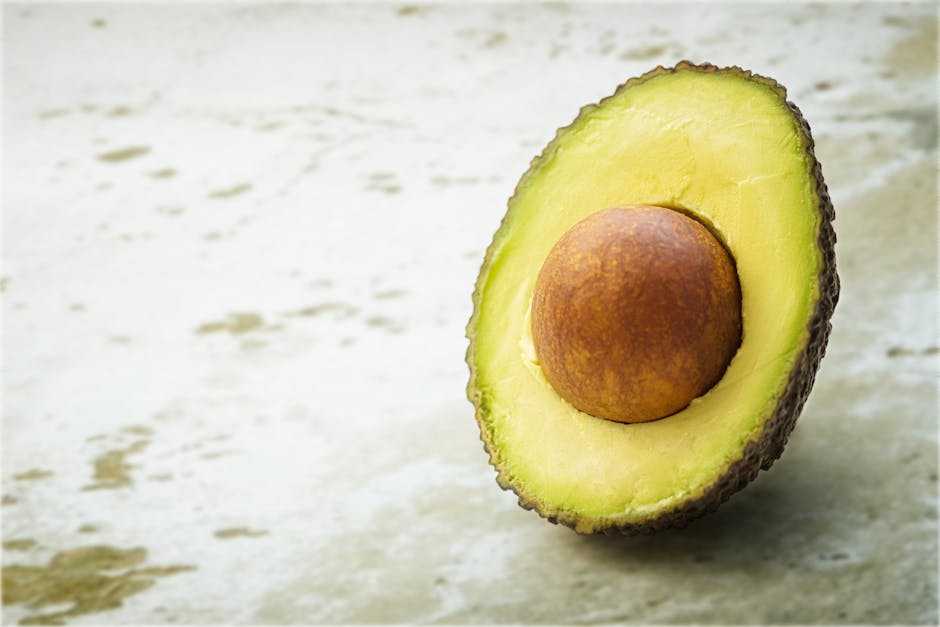Grocery shopping is not just about filling up your cart; it’s an opportunity to make mindful choices that benefit both your health and the environment. As I navigate the aisles, I’m constantly seeking ways to shop sustainably and healthily.
In this article, I’ll share some valuable tips to help you make informed decisions during your next grocery trip. From selecting organic produce to choosing products with minimal packaging, every choice we make at the grocery store can have a significant impact.
As I’ve learned through my own journey, small changes in our shopping habits can lead to a healthier lifestyle and a more sustainable future. Join me as I explore practical strategies for incorporating sustainability and wellness into your grocery shopping routine.
Benefits of Sustainable Grocery Shopping
Shopping sustainably not only benefits the environment but also has numerous advantages for our health and well-being. Here are some key benefits of opting for sustainable grocery shopping practices:
- Improved Health: By choosing organic produce free from harmful pesticides and chemicals, I ensure that I’m consuming food that is not only healthier but also better for my body in the long run.
- Reduced Exposure to Toxins: Selecting products with minimal packaging helps reduce my exposure to harmful chemicals often found in plastic packaging, contributing to better overall health.
- Supporting Local Farmers: By purchasing locally sourced products, I support small-scale farmers in my community, promoting a more sustainable agricultural system and fresher produce for myself.
- Environmental Conservation: Sustainable shopping practices help reduce waste and lower carbon footprints, playing a vital role in conserving natural resources and preserving the environment for future generations.
- Budget-Friendly: Contrary to popular belief, sustainable grocery shopping can be cost-effective in the long term. By focusing on whole foods and seasonal produce, I save money and enjoy nutritious meals.
- Ethical Consideration: Knowing where my food comes from and how it’s produced allows me to make ethical choices, supporting practices that align with my values and contributing to a more transparent food system.
Embracing sustainable grocery shopping not only benefits my personal health and well-being but also plays a significant role in creating a more resilient and environmentally conscious food system.
Choosing Local and Organic Produce
When it comes to grocery shopping, opting for local and organic produce is a fantastic way to support both your health and the environment. Local and organic fruits and vegetables are not only fresher and more flavorful but also have a lower environmental impact compared to their conventional counterparts.
By choosing local produce, you can reduce the carbon footprint associated with transportation since the goods are sourced closer to home. This supports the local economy and reduces the emissions generated from long-distance shipping.
Additionally, locally grown produce is often harvested at its peak ripeness, ensuring higher nutrient content and better taste. Organic produce, on the other hand, is grown without synthetic pesticides or fertilizers, making it healthier for both you and the environment.
By selecting organic items, you can avoid consuming harmful chemicals commonly found in conventionally grown produce. This choice promotes soil and water conservation, as organic farming practices prioritize sustainability and long-term environmental health.
Next time you’re at the grocery store, look for the “local” and “organic” labels on fruits, vegetables, and other products to make more sustainable and nutritious choices for you and your family.
Understanding Food Labels
When navigating the aisles for sustainable and healthy options, it’s essential to decipher the information on food labels accurately. Understanding food labels empowers me to make informed choices that align with my values and health goals. Let’s delve into decoding organic and non-GMO labels to ensure we’re selecting the best options for our well-being and the environment.
Decoding Organic and Non-GMO Labels
When I see the term “organic” on a food label, I know that the product was produced without synthetic pesticides, genetically modified organisms (GMOs), or artificial additives. Opting for organic items guarantees that I’m consuming food in its purest form, free from harmful chemicals that can impact both my health and the environment.
Additionally, choosing non-GMO products assures me that the ingredients have not undergone genetic modification, maintaining the integrity of the food’s natural composition. By understanding these labels, I can confidently select products that promote sustainable practices and support a healthier lifestyle.
Minimizing Food Waste
In reducing food waste, I find it essential to plan my meals ahead. By creating a detailed grocery list based on my weekly menu, I ensure that I buy only what I need, preventing unnecessary purchases that may end up unused.
This method not only helps me stay organized but also minimizes the chances of food spoilage. Another effective strategy I use is checking the expiration dates on products while shopping. By selecting items with later expiration dates, I can extend the shelf life of my groceries and reduce the likelihood of having to discard them prematurely.
It’s a simple yet practical way to minimize food waste at home.
Additionally, I prioritize using leftovers creatively to avoid throwing away excess food. By incorporating leftover ingredients into new dishes or meals throughout the week, I not only reduce waste but also add variety to my diet. It’s a sustainable approach that helps me make the most out of every grocery purchase.
Meal Planning for Sustainable Shopping
Meal planning is a key strategy for sustainable shopping. When I plan my meals ahead, I ensure that I only purchase what I need, reducing food waste and saving money.
It’s essential to create a detailed grocery list based on planned meals to avoid unnecessary purchases and impulse buying. By sticking to the list, I can make more conscious choices and minimize the chances of buying items with excessive packaging or those that may contribute to environmental harm.
Planning my meals also helps me select healthier options. When I plan nutritious and balanced meals, I focus on purchasing fresh produce, whole grains, and lean proteins, promoting a healthier diet for myself and my family.
Additionally, meal planning allows me to consider seasonal and local ingredients, supporting sustainable farming practices and reducing the carbon footprint associated with food transportation. I find that dedicating a specific time each week to plan my meals and create a shopping list not only streamlines my grocery shopping experience but also enables me to make informed decisions that align with my health and sustainability goals.
By integrating meal planning into my routine, I can contribute to a more sustainable food system while fostering healthy eating habits for myself and those around me.
Prioritizing Plant-Based Options
Exploring plant-based options during grocery shopping is pivotal for improving both personal health and environmental sustainability. Incorporating more plant-based foods into my shopping list not only benefits my well-being but also reduces the carbon footprint associated with animal agriculture.
By opting for items such as legumes, fruits, vegetables, nuts, and seeds, I’m making environmentally conscious choices that support a healthier lifestyle.
- Nutritional Value: Plant-based foods are rich in essential vitamins, minerals, and antioxidants that are beneficial for overall health.
- Environmental Impact: Choosing plant-based options over animal products reduces greenhouse gas emissions, water usage, and land degradation.
- Variety and Flavor: Plant-based meals offer a wide array of flavors and textures, allowing for diverse and satisfying culinary experiences.
When I prioritize plant-based options, I not only enhance my nutrition but also contribute to a more sustainable food system. Incorporating plant-based proteins like tofu, lentils, and quinoa into my meals provides ample nutrients while minimizing the environmental impact of my food choices. It’s a simple yet impactful shift that aligns with my health and sustainability goals. By focusing on plant-based ingredients, I’m not only supporting my well-being but also advocating for a more eco-friendly approach to grocery shopping.
Budget-Friendly Sustainable Shopping Tips
When considering sustainable grocery shopping, I always look for ways to make mindful choices that benefit both my health and the environment without breaking the bank. Here are some budget-friendly tips to help you shop sustainably and responsibly:
- Buy in Bulk: Purchasing items like grains, nuts, and seeds in bulk can save money and reduce packaging waste. Buying in larger quantities often comes with a lower price per unit, making it a cost-effective choice for sustainable shopping.
- Shop Seasonal Produce: Opt for fruits and vegetables that are in season. Seasonal produce is usually fresher, tastier, and more affordable as it doesn’t require extensive transportation or storage. Local farmer’s markets are great places to find seasonal items at reasonable prices.
- Meal Prep and Planning: Planning your meals for the week and prepping ingredients in advance can help you avoid last-minute, unplanned purchases. By only buying what you need, you can minimize food waste and save money on unnecessary items.
- Grow Your Own: Consider growing your own herbs, fruits, or vegetables if space allows. It’s a rewarding way to have access to fresh produce right at your fingertips, reducing the need to buy certain items regularly.
- Utilize Leftovers Creatively: Instead of discarding leftovers, get creative with incorporating them into new meals. Leftover veggies can be added to stir-fries or soups, while unused grains can be turned into a hearty salad. This not only reduces food waste but also stretches your grocery budget further.
Implementing these budget-friendly sustainable shopping tips can not only help you save money in the long run but also contribute to a healthier lifestyle and a greener planet.



 Founder
Damond Boucherley is the visionary founder of Aura Nature Spark, dedicated to promoting well-being through holistic practices. With a passion for nutrition, exercise, and mindfulness, Damond brings years of experience in health and wellness to the forefront of the organization. He believes in the transformative power of nature and is committed to providing valuable insights and resources that inspire individuals to live their best lives. Under his leadership, Aura Nature Spark continues to grow as a trusted source for health enthusiasts seeking balance and vitality.
Founder
Damond Boucherley is the visionary founder of Aura Nature Spark, dedicated to promoting well-being through holistic practices. With a passion for nutrition, exercise, and mindfulness, Damond brings years of experience in health and wellness to the forefront of the organization. He believes in the transformative power of nature and is committed to providing valuable insights and resources that inspire individuals to live their best lives. Under his leadership, Aura Nature Spark continues to grow as a trusted source for health enthusiasts seeking balance and vitality.
